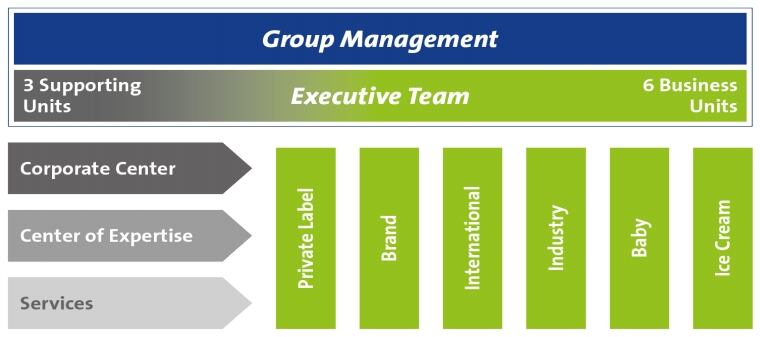As a consequence of what the company called a ‘dramatic turn in the market in 2016,’ many farmers have given up dairy farming.
Members leaving DMK will mean the loss of around 1.7bn kilos of milk in the next two years.
In response, the company said it is planning a new concept for its sites and for milk processing.
This will involve stopping production at three sites: Rimbeck/North Rhine-Westphalia, Bad Bibra/Saxony-Anhalt, and Bergen on the island of Rügen.
There are also plans to discontinue slicing and packaging at an additional site, Nordhackstedt/Schleswig-Holstein.
Restructuring needed
DMK said with a leaner structure and further improvements in raw materials planning, it aims to remain competitive and efficient even when milk volumes decline.
CEO Ingo Müller said a “sweeping structural program” would future-proof DMK.
“We've learned from our mistakes," he said.
Milk prices lower than competitors
Müller said he was dissatisfied with the 2016 reporting period, saying DMK clearly fell short of its most important goal – to pay competitive milk prices.
“There's no way to gloss over that fact," he admitted.
While turnover increased from €4.6bn ($5.25bn) to €5.1bn ($5.8bn), the 11% rise was primarily achieved due to the full consolidation of Dutch company DOC Kaas B.V.
The company said the 2016 world-wide dairy market crisis was amplified by DMK's poor business performance.
The average milk price for dairy farmers in the reporting period, 25.2 eurocents ($0.287) per kilo (4.10% fat, 3.41% protein), fell below the German national average (26.7 eurocents($0.304)/kilo) and DMK's goal.
"Milk prices were not what the members of our cooperative expected as its owners – either in absolute terms or by comparison with competitors," Müller said.
Citing an upturn in the market in 2017, Müller said the price would be increased to 36 eurocents ($0.41) in July.
Reorganization begins
Müller said the MOVE program to stimulate change launched at the end of 2016, and the realignment entered the implementation stages in March 2017.
The program has four goals: a leaner organization, better raw materials planning, a focused portfolio and an optimized expenditure structure.

"The change processes are sometimes painful, but they are putting our company on course for the future. Initial ratios for 2017 show that we're on the right track," Müller noted.
Reduction in supply commitment
Representatives at the cooperative’s annual assembly also voted in favor of allowing a farmer to reduce the amount of time milk must be supplied after giving notice from two years to one.
A farmer who decides to leave to sell milk elsewhere can now do so after 12 months.
Heinz Korte, chairman of the supervisory board, said it would give flexibility for those members who want it, but added farmers who want long-term protection still have the option of a two-year guarantee to supply milk and have it accepted.
